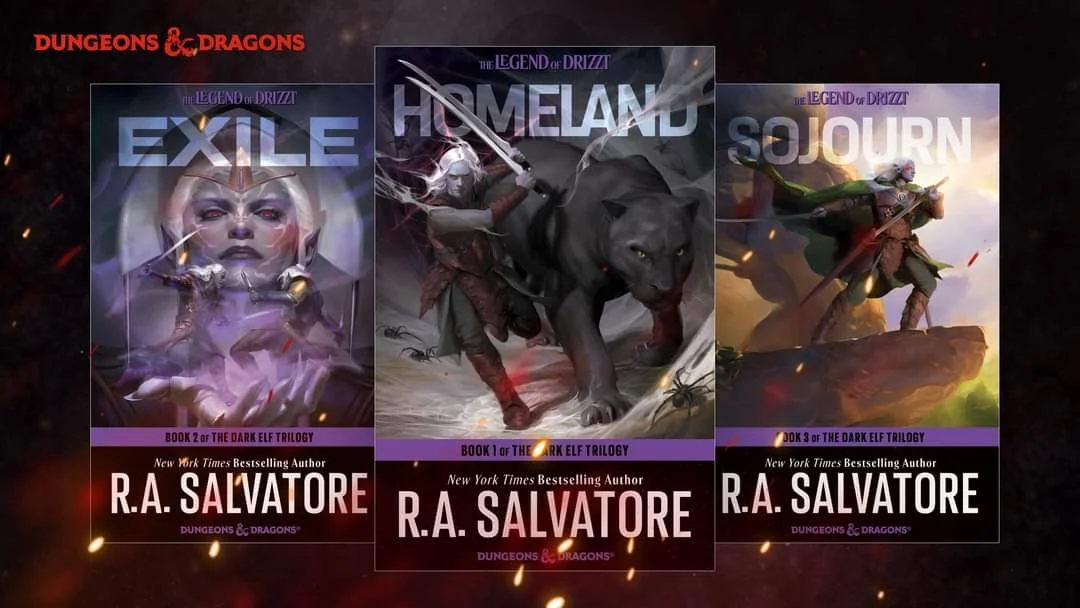
Synopsis
Discover the origin story of one of Dungeons & Dragons’ greatest heroes, drow ranger Drizzt Do’Urden, in the thrilling first adventure in The Dark Elf Trilogy.
As the third son of Mother Malice and weaponmaster Zaknafein, Drizzt Do’Urden must be sacrificed to Lolth, the evil Spider Queen, per the tradition of their matriarchal drow society. But the unexpected death of his older brother spares young Drizzt―though he is still at the mercy of his abusive sisters.
As Drizzt grows older and proves himself to be a formidable warrior at Melee-Magthere Academy, he realizes that his idea of good and evil does not match that of his fellow drow, who show only cruelty to the other creatures of the Underdark. Can Drizzt stay true to himself in a such an unforgiving, unprincipled world?
Review
The tales and adventures of Drizzt Do’Urden, famed and infamous Dark Elf of who this series gets its name, are a beloved classic adored by many fantasy readers since the late 80’s. And for today’s ramblings by yours truly, we go right back to the beginning…
Well, not really the beginning. Technically the first published book in this long saga is The Crystal Shard, book one of the Icewind Dale trilogy, which is actually book 4 in the chronology. Star Wars fans, you know what’s up. Anyway, The Dark Elf trilogy is Drizzt’s origin story, starting with his literal birth and taking us through his time as killer-in-training, to outcast drow, to his search for meaning in this world that doesn’t want him. He is very much the dual scimitar weilding action packed version of Robin Hobb’s Fitz, mainly because this guy can’t catch a break! He has so much shit happen to him, you can’t help but feel sorry for him.
I will talk about each book briefly in turn, but my overall thoughts on this starter trilogy can be summed up in a short sentence: it was a whole lot of fun! And frankly, that’s okay. I went into this expecting a not too complicated, by the numbers high fantasy action romp and was surprised to find, as the books progressed, that there was quite a lot of heart present too.
Due to the size of this setting, The Forgotten Realms (honestly its massive), Salvatore has plenty of fantastical creatures, monsters and races to play with. For much of the runtime of these books, the life we do encounter is truly unique. Drow, Svirfneblin, Hook Horrors, Pech, massive fuck-off spiders, and loads more. As someone who wasn’t able to play D&D and was blissfully unaware of this huge universe, a lot of these monsters surprised me, along with the different races, their cultures & customs, all of which, whilst it took a little bit of getting used to, were really fascinating to learn. For those of you are veterans of D&D, I’m sure it would feel like slipping on a well-worn pair of gloves, or a much loved pair of shoes, or an other item of clothing that you like a lot. Because of the uniqueness of the races/cultures etc. the characters really do feel like larger than life individuals. Most are instantly memorable, despite only having a small amount of screen-time. I would be daft if I didn’t mention Guenhwyvar, Drizzt’s summonable panther companion, who is a good, loyal meow meow and deserves all the catnip!
Despite this, my only real gripe across the whole trilogy is the writing style. Salvatore employs a third-person omniscient narrator structure which makes the books feel dated. It also creates a bit of separation between the reader (me, at least) and the characters, so I personally couldn’t latch onto some of the more impactful moments that I think he was going for. Frankly, this writing style felt more prevalent in Homeland (for which I’ll explain more later). The likelihood is I just got used to it, but the more the books focused solely on Drizzt’s POV, the more enjoyment I derived from them.
Really though, my main thing with this trilogy is that – and this is very much me stating the obvious here – the three books together feel like three acts of one greater arc. It almost feels like 1 book published as 3, much like LOTR. Where in most trilogies you’ll get three arcs, one for each novel, this is very much one full arc for Drizzt, and ultimately, it is the telling of Drizzt’s childhood into his early adult years, a period plagued by self-doubt, a desire for belonging, and a desperation to find goodness in this unforgiving existence.
And so, without further ado, let’s jump into my mini review for the first book in the trilogy!
Homeland
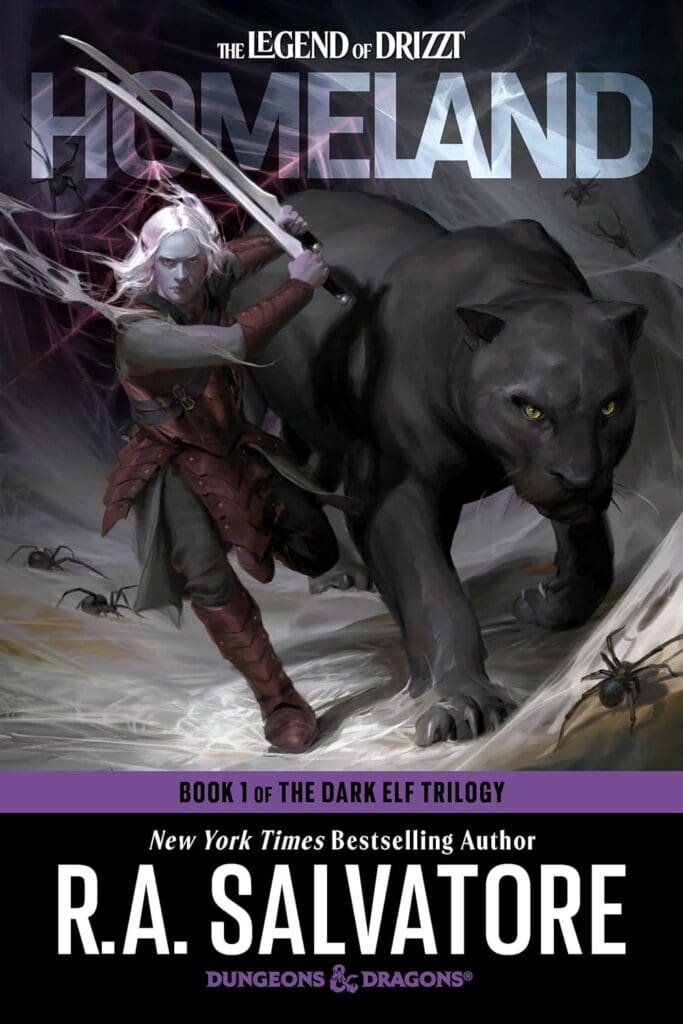
“Do more than survive, my son, as I have survived. Live! Be true to the callings in your heart.”
Homeland follows the birth of Drizzt – literally and metaphorically -, a birth which he was never supposed to survive. The book opens with a vicious take over of one of House Do’Urden’s rival families, the very same night of Drizzt’s birth. It’s immediately gripping and perfectly portrays the callousness of the Drow society, the rampant ambition for power and control, which is something that is explored throughout this story. The remainder of the book then follows the years (decades, these are ageless elves after all) after this takeover, the dark politics, religious fanaticism, and general cruelty of this city and the families that rule it through assassinations, cunning, and secrecy. Whilst there isn’t much of a through line plot, it is much more of a character study of these despicable people and the small motes of light in the dark. Due to this however I did feel it began to meander between the larger moments of the story. It explores this completely alien culture which is, as I said earlier, very fascinating to discover. The way Salvatore builds the shadow drenched city of Menzoberranzan is very vivid, if so very peculiar. Being a Warhammer 40k fan, I’m used to strange alien worlds, but Menzoberranzan is definitely up there with the weirdest! It did take me a while to get used to most of the names and other made up words as they are so different from something I’ve seen before that this did slow things due my constant Googling of stuff. This book also deals with Drizzt’s struggles to come to terms with his own nature and that of the world he was born into (a theme that occurs throughout this trilogy to great effect) as both are clashing opposites of one another. Going back to the omnipresent narrator, we do head hop a lot, which made me feel slightly disconnected from story. As there is a much larger cast here due to its tendency to focus on the schemeiness of the characters, the head hopping works similar to Dune, which of course has its pros and cons. The cons, however, tend to grate on me a bit more, plus I feel as if it dates the book, compared to more modern writing styles. But considering that I read this book months ago, it, and the characters that dwell within, still feel fresh in my mind. Zaknafein and Drizzt’s sparring blossoming into a real father/son bonding moment, Matron Malice and her evil daughters trying to out-evil one another, the trainees of Melee-Magthere surfacing onto Faerûn for the first time with wickedness in their hearts. The bigger moments that define these characters, of course Drizzt especially, do work really well. Salvatore’s action sequences are also brilliant, they themselves not just being violent romps (which they, surprising, are often quite brutal) but also serving to further the development of the cast. Overall, this was a very strong start, ending at a point where you simply have to jump into book 2 immediately.
Exile
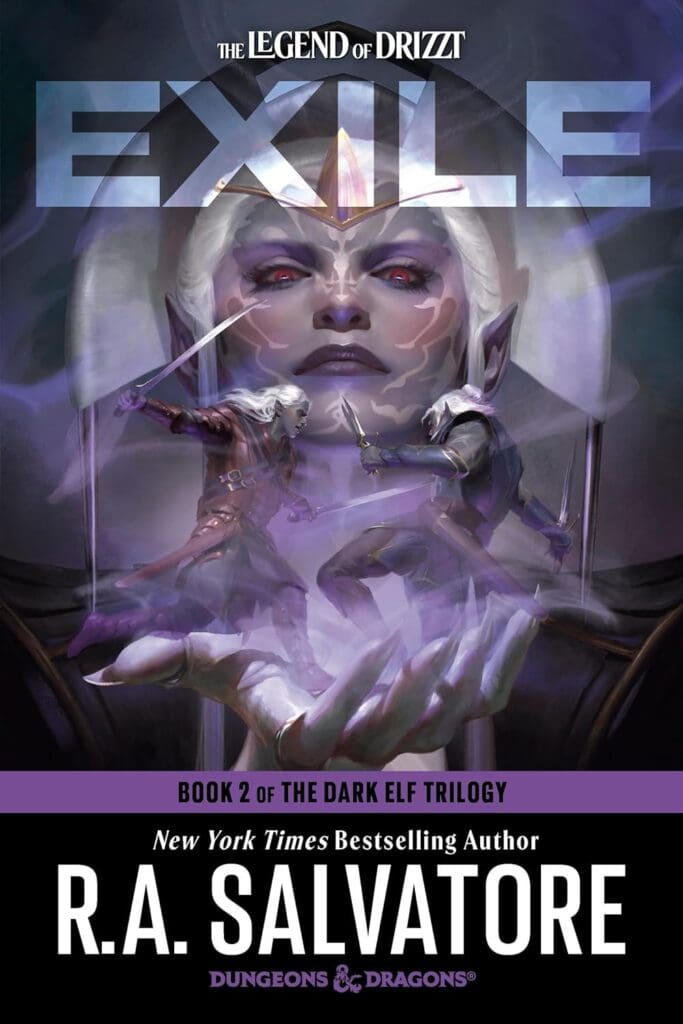
“Joy multiplies when it is shared among friends, but grief diminishes with every division. That is life.”
Exile begins at what is possibly Drizzt’s lowest moment (so far). Exploring the monster filled Underdark, he is very much a creature of survival now, and it’s the juxtaposition between the predators that lurk in the shadows vs Drizzt’s inner demons that propel a lot of this book. It feels more intimate, more focused too, the complex plotting of Menzoberranzan behind him, but never too far. There are also some emotional beats here, some big character moments, especially at the end, that are really effective. The action is more plentiful and more meaningful, and Drizzt’s interactions with other races are dripping with complications of centuries of history between the Drow and whoever he is interacting with. I really felt like, where book 1 set up a lot of Drizzt’s emotional attachments, book 2 knocked them down with heart-tearing aplomb. Also, Mindflayers, the disgusting illithids, are cosmic nightmares that I love!
Sojourn
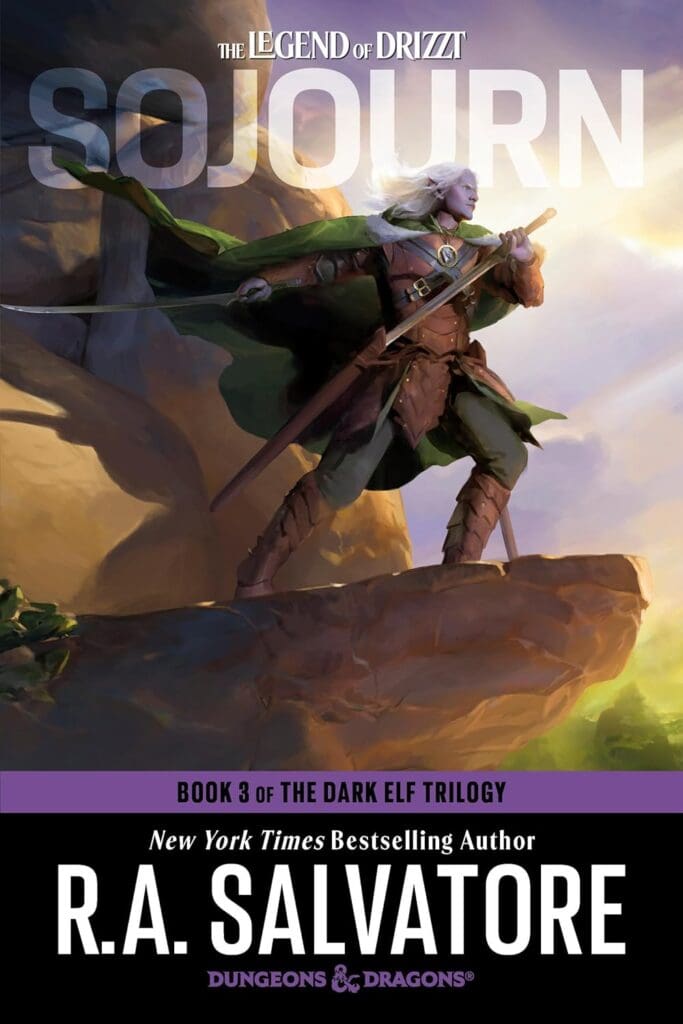
“There is a wide world out there, my friend, full of pain, but filled with joy as well. The former keeps you on the path of growth, and the latter makes the journey tolerable.”
The final book, Sojourn, is very much a bridge novel between The Dark Elf trilogy and Icewind Dale, but to me, it doesn’t feel like filler. Where book 1 and 2 are set up and then explosion, book 3 cements final themes and brings Drizzt’s arc, his search for meaning, to a satisfying conclusion. It’s very much an extended epilogue, and encore as such. I’d also say it’s the most melancholy of the trilogy. There are moments of sadness throughout, yes, but here they feel more woeful, very much like Drizzt is being kicked whilst he’s already down. Towards the end, the book does lose some steam as it starts to wind down and prep for setting up the second trilogy, but I feel like the final closing moments are fulfilling and worth the journey.
And there we have it! My mini reviews for books 2 and 3 are much shorter to avoid spoilers, which is ironic because I feel like these two books have the most to discuss and delve into. I’m always up for a chat about these books, so feel free to hit me up on BlueSky!







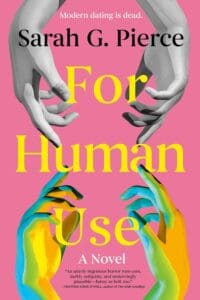
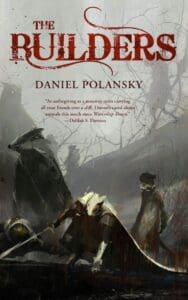
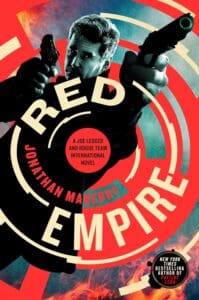
Leave a Reply